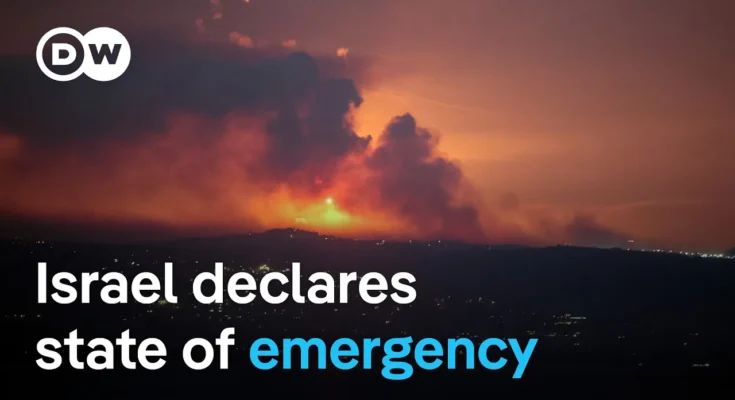Israel and the Hezbollah militant group based in Lebanon say they have launched attacks against each other. Israel says its armed forces struck thousands of missile sites to prevent a large-scale attack on its territory. Hezbollah says it has launched a large number of drones against Israel in retaliation for the killing of one its commanders in Beirut last month.
Hezbollah’s New Strategy: Hezbollah’s recent statement reflects a shift in their approach to the ongoing conflict. The militant group has vowed to increase their military activities and maintain continuous pressure on Israeli forces. Hezbollah’s leader, Hassan Nasrallah, declared that their operations will continue unabated, with a focus on mounting sustained attacks on Israeli positions and infrastructure.
Israeli Concerns: In response to Hezbollah’s declaration, Israel is on high alert. The Israeli Defense Forces (IDF) are preparing for a possible escalation, with increased military readiness along the northern border and heightened surveillance of potential threats. Israeli officials are concerned that Hezbollah’s aggressive stance could lead to a significant intensification of hostilities, potentially involving a new wave of rocket attacks and border incursions.
Impact on Civilians: The ongoing conflict has already caused substantial damage and disruption in both Lebanon and northern Israel. Civilians in affected areas are facing increased risk as the conflict escalates. Emergency services are bracing for potential casualties and are working to provide assistance and support to those impacted by the violence.
International Reactions: The international community is closely monitoring the situation, with calls for restraint and renewed efforts toward a ceasefire. The United Nations and various global leaders have urged both sides to de-escalate and engage in dialogue to prevent further bloodshed and address the underlying issues fueling the conflict.
Future Outlook: The declaration of “no-rest” by Hezbollah suggests a continued and potentially worsening conflict. Analysts warn that without intervention and diplomacy, the situation could spiral further out of control, leading to increased regional instability.


